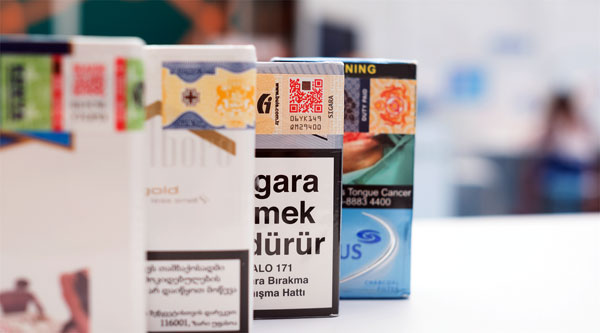Tackling illicit trade


A recent World Bank report outlined a number of key measures that could reduce illicit activity in the trade of tobacco products, including effective systems that can track the secure movement of cigarettes and other items through the supply chain from production or import to point-of-sale.
The report acknowledges a pioneer track-and-trace system already in operation in Brazil, highlights the strong performance of the current system in Ecuador and welcomes its expected implementation in Chile. It also hails the success of a “robust” excise stamp program in Ireland, notes the high rates of stamp usage in the Philippines, and acknowledges how a track and trace system in Kenya is contributing to industry best practice.
The International Tax Stamp Association (ITSA), which promotes the benefits of tax stamp programs and best practice within the sector, has welcomed the World Bank’s recommendation for greater investment in security solutions, which could ultimately drive down fraud and help governments around the world to collect additional excise revenues and control tobacco consumption.
“The World Bank report highlights how illicit tobacco trade is a major obstacle in the drive to control tobacco consumption and improve health outcomes,” says Christine Macqueen of ITSA. “Taxes and prices can have a major impact on curbing this illegal trade but need to be supported by strong governance and high-level security.
“As the case studies in the report show, countries should be encouraged to use the latest technology when putting in place high security excise tax stamps, be they labels or secured digital marks, which form the basis of robust systems to identify and track products as they move through the supply chain. This is in line with the provisions outlined in the World Health Organization’s Framework Convention on Tobacco Control (FCTC) Protocol.”
The World Bank report warns against relying on the tobacco industry when forming a strategy to combat illicit trade. It states that case studies from the U.K. and Ireland emphasize the need to fulfill obligations under Article 5.3 of the FCTC to prevent the tobacco industry from influencing public policy. Other case studies, including those from Georgia, Columbia, Australia and Malaysia, also confirm prior findings that the tobacco industry regularly overstates levels and changes in tobacco illicit trade to pressure governments into reducing taxes.
“It is vital that product identification and track and trace systems should be fully independent and not controlled by the interests of the tobacco industry,” says Macqueen. “We welcome the World Bank and WHO’s position that tobacco industry interference in public policy should be prohibited. We hope that the EU moves towards this stance; the revised EU Tobacco Products Directive currently mandates that only one of the five authentication features on cigarette packets needs to be provided by an independent third party. To improve transparency and best practice in the movement of tobacco goods, this must change.”
This report was submitted by the International Tax Stamp Association.
